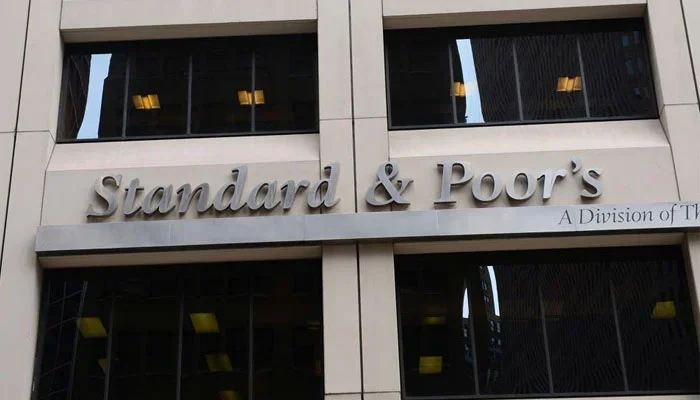KARACHI: According to The News, a series of shocks, including flooding and rising inflation, have harmed Pakistan’s external, fiscal, and economic metrics, resulting in S&P Global Ratings downgrading the country’s credit score.
According to a statement, S&P downgraded Pakistan’s credit rating from B- to CCC+ because it anticipates that the country’s dwindling foreign reserves will continue to be under pressure in the upcoming year, as political risks persist.
S&P analysts Andrew Wood and YeeFarn Phua wrote, “Pakistan’s already low foreign exchange reserves will remain under pressure throughout 2023, barring a material decline in oil prices or a step-up in foreign assistance.”
Additionally, the nation is exposed to elevated political risks, which may influence the course of its policy over the coming year.
The $7.8 billion in foreign bonds held by the nation are already rated seven notches below investment grade by Moody’s Investors Service and Fitch Ratings, which places them on par with El Salvador and Ukraine for their CCC+ ratings. On Thursday, S&P also changed Pakistan’s outlook from negative to stable.
With only enough reserves to cover one month’s worth of imports, a dearth of dollars, and a delay in its loan program with the International Monetary Fund, the nation is in the midst of an economic crisis. Long-term dollar bonds continue to trade at distressed levels despite the payment of a $1 billion bond this month; investors are pessimistic about Pakistan’s ability to meet its obligations under its foreign debt.
S&P said that Pakistan’s economic and fiscal outcomes will be further impacted by this year’s severe floods, rising food and energy prices, and rising global interest rates, creating difficulties with refinancing in the medium term.
Over 1,700 people were killed in Pakistan’s summer floods, which inundated a third of the country and halved the country’s growth. The floods have cost the country’s economy approximately $32 billion in damages and losses.
In the meantime, the current administration has limited time to implement economic reforms because it is expected to leave office in August of next year or earlier.
According to the S&P analysts’ writing, “we expect political uncertainty to remain elevated over the coming quarters, with continued pressure from the opposition to hold early elections.”
The organization’s outlook remained “stable.”








